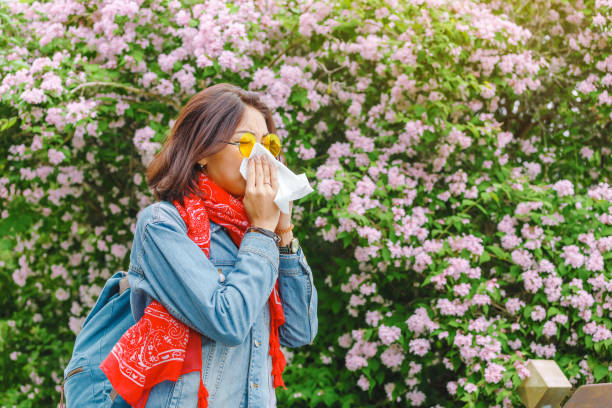Welcome to allergy season! This time of year is when the beauty of blooming flowers goes hand in hand with sneezing, itchy eyes, and overall discomfort for allergy sufferers. While you may not be able to escape allergens completely, there are ways you can make allergy season more bearable. Let’s explore some practical tips and tricks for surviving another allergy season.
Understanding Allergy Season
Before discussing remedies, it’s crucial to understand what causes allergies. Allergies occur when your immune system overreacts to a harmless substance, such as pollen, dust mites, pet dander, or certain foods. During allergy season, pollen is the primary culprit, triggering allergic reactions in many individuals.

During allergy season, the air is filled with pollen, triggering sneezing fits and itchy eyes for many.
Tips for Surviving Allergy Season:
Monitor Pollen Counts During Allergy Season
Stay informed about pollen levels in your area by checking local weather forecasts or using pollen tracking apps. On days when pollen counts are high, limit your time outdoors, especially during peak pollen hours, which are early in the morning and late in the afternoon.
Keep Windows Closed
While it may be tempting to let in some fresh air, keeping windows closed during allergy season can prevent pollen from entering your home and exacerbating symptoms. Use air conditioning instead and consider investing in a HEPA filter to trap airborne allergens.
Maintain Clean Indoor Spaces
Regularly clean your home to remove dust, pet dander, and other allergens that can accumulate on surfaces. Vacuum carpets and rugs frequently, and wash bedding in hot water at least once a week. Additionally, consider using allergen-proof covers for pillows and mattresses.
Practice Nasal Irrigation
Nasal irrigation, using a saline solution or a neti pot, can help flush out allergens from your nasal passages, relieving congestion and sinus pressure. Just be sure to use distilled or boiled water to prevent the risk of infection.
Take Allergy Medications
Over-the-counter antihistamines, decongestants, and nasal sprays can help alleviate allergy symptoms such as sneezing, itching, and congestion. Consult a healthcare professional for personalized treatment options for severe or persistent symptoms.
Use Allergy-Friendly Landscaping
If you plan to landscape your yard, consider choosing plants less likely to trigger allergies, such as low-pollen flowers and grasses. Avoid planting male trees, which produce more pollen than female trees.
Protect Yourself Outdoors
When spending time outdoors, wear sunglasses to shield your eyes from pollen, and consider wearing a pollen mask if you’re engaging in activities that may stir up allergens, such as gardening or mowing the lawn.
Stay Hydrated
Drinking plenty of water can help thin mucus secretions and moisten your nasal passages, easing congestion and alleviating symptoms.
While allergy season can be challenging for many individuals, incorporating these tips into your daily routine can help minimize discomfort and improve your overall quality of life. By staying informed, practicing good indoor hygiene, and taking proactive measures to reduce exposure to allergens, you can navigate allergy season with greater ease and comfort. Remember, if your symptoms persist or worsen, don’t hesitate to seek guidance from a healthcare professional. Here’s to a sniffle-free season!
Learn More With PHN:
Connect with our PHN Blog to learn more health tips and news, or visit our Facebook & Instagram to see all the exciting things we are up to.
